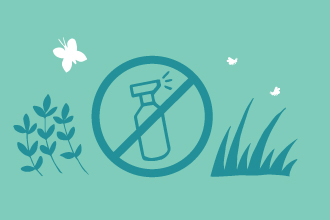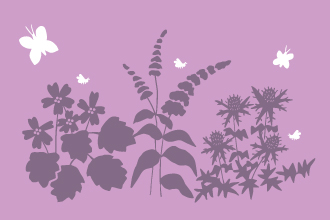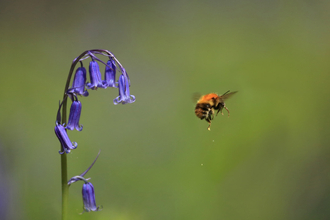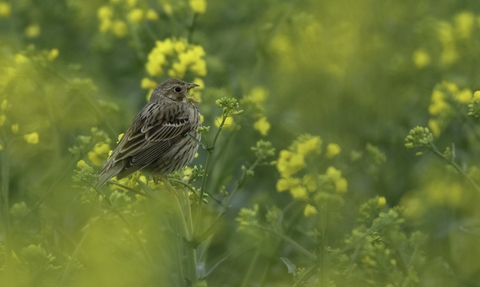
Chris Gomersall/2020VISION
A change in mindset
Going chemical free
An arable farmer in Lincolnshire, Peter Lundgren stopped using neonicotinoid pest controls 15 years ago and adopted management that actively encourages ‘beneficial’ insects in and around the farm’s cropped fields. These act as predators, successfully reducing numbers of slugs, flea beetles, aphids and other crop-damaging invertebrates. Peter found that by promoting beneficial insect populations to help with control, he also saved money on outputs such as insecticides and slug pellets, whilst maintaining yields.
• Does not use neonicotinoids or slug pellets
• Promotes beneficial insects in fields
• Saves money whilst maintaining yields
Plaw Hatch Farm in East Sussex is a 160 hectare community owned, mixed, biodynamic farm producing a range of fruit and vegetables, dairy, eggs and meat sold mainly though their farm shop. The farm uses practices aimed at nurturing healthy soils and wildlife, whilst also producing nutritious food and providing a space for the community to use and enjoy. Varied habitats provide a rich mosaic for insects, and recent projects have included creation of wildflower areas and hedgerows.
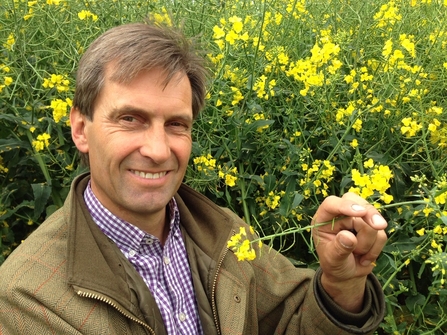
Peter Lundgren
I am a conventional farmer growing combinable crops in Lincolnshire. However, I took the unconventional decision to stop using neonicotinoids, which meant I needed an alternative to controlling pests below a certain threshold if I was to be confident of growing financially viable crops. The obvious low-cost solution was to increase the numbers of beneficial insects that would assist me in controlling other damaging insects. I also realised it’s no good creating wildflower margins for beneficial insects when the cropped area is a ‘no fly zone’ due to the pesticides used there. I discovered increasing populations of beneficial insects gave unexpected benefits. For instance, I’ve not used slug pellets for many years. Most importantly, by promoting beneficial insect populations to help with controlling pests I save a lot of money on insecticides & slug pellets whilst maintaining yields.

